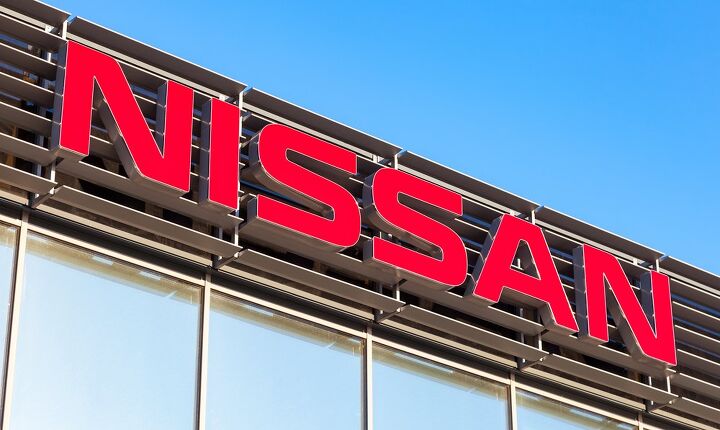Incoming Nissan CEO to Employees: We'll Get There

Even though Makoto Uchida hasn’t officially assumed his role as Nissan’s new CEO, the incoming boss hasn’t wasted time reassuring employees that his main focus will be restoring the business’ financial performance. “Nissan is on the right path for recovery … although it might be a gradual process,” he told workers on Friday.
Reuters shared details of the event, adding that Uchida expressed the importance of rebuilding trust with both the public and the greater Renault-Nissan-Mitsubishi Alliance. It’s no secret that the business relationship between the French and Japanese automakers has grown strained, leaving many wondering if the next CEO would attempt to run back into the strong arms of Renault or move the company further away.
From Reuters:
Uchida said he was poised to use all his experience to turn the company around, which he stressed also “will include the building of alliance partnerships”.
In picking Uchida as the new global head of Nissan, the company’s board has chosen an executive known internally for close ties to top shareholder Renault and for a frank, straight-talking manner that has marked him as an outsider.
According to one long-time associate, who spoke on condition of anonymity, Uchida is known for his unflagging work ethic and relentless focus on cost control. The source described Uchida as direct and to the point in conversations, a “foreigner with a Japanese face”.
Uchida’s placement was announced earlier this month, along with the naming of Ashwani Gupta as Mitsubishi’s chief operating officer and Nissan executive Jun Seki as vice chief operating officer. Uchida isn’t expected to take over until January 1st, at which time Nissan’s restructuring efforts will be in full effect. That includes the elimination of at least 12,500 positions by March 2023, as well as a 10-percent reduction in the automaker’s product lineup.
[Image: FotograFFF/Shutterstock]

A staunch consumer advocate tracking industry trends and regulation. Before joining TTAC, Matt spent a decade working for marketing and research firms based in NYC. Clients included several of the world’s largest automakers, global tire brands, and aftermarket part suppliers. Dissatisfied with the corporate world and resentful of having to wear suits everyday, he pivoted to writing about cars. Since then, that man has become an ardent supporter of the right-to-repair movement, been interviewed on the auto industry by national radio broadcasts, driven more rental cars than anyone ever should, participated in amateur rallying events, and received the requisite minimum training as sanctioned by the SCCA. Handy with a wrench, Matt grew up surrounded by Detroit auto workers and managed to get a pizza delivery job before he was legally eligible. He later found himself driving box trucks through Manhattan, guaranteeing future sympathy for actual truckers. He continues to conduct research pertaining to the automotive sector as an independent contractor and has since moved back to his native Michigan, closer to where the cars are born. A contrarian, Matt claims to prefer understeer — stating that front and all-wheel drive vehicles cater best to his driving style.
More by Matt Posky
Latest Car Reviews
Read moreLatest Product Reviews
Read moreRecent Comments
- Corey Lewis It's not competitive against others in the class, as my review discussed. https://www.thetruthaboutcars.com/cars/chevrolet/rental-review-the-2023-chevrolet-malibu-last-domestic-midsize-standing-44502760
- Turbo Is Black Magic My wife had one of these back in 06, did a ton of work to it… supercharger, full exhaust, full suspension.. it was a blast to drive even though it was still hilariously slow. Great for drive in nights, open the hatch fold the seats flat and just relax.Also this thing is a great example of how far we have come in crash safety even since just 2005… go look at these old crash tests now and I cringe at what a modern electric tank would do to this thing.
- MaintenanceCosts Whenever the topic of the xB comes up…Me: "The style is fun. The combination of the box shape and the aggressive detailing is very JDM."Wife: "Those are ghetto."Me: "They're smaller than a Corolla outside and have the space of a RAV4 inside."Wife: "Those are ghetto."Me: "They're kind of fun to drive with a stick."Wife: "Those are ghetto."It's one of a few cars (including its fellow box, the Ford Flex) on which we will just never see eye to eye.
- Oberkanone The alternative is a more expensive SUV. Yes, it will be missed.
- Ajla I did like this one.

































Comments
Join the conversation
Me neither!
They can rearrange the deck chairs all they want, but what can any of those brands offer (to the mainstream) other than the cheapest option and or last resort financing?